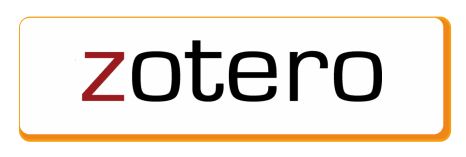Implementasi Langkah Kerja Konseling Model Kipas dalam Mengembangkan Karakter Generasi Alpha
 Abstract views: 661
,
Abstract views: 661
,
 PDF downloads: 911
PDF downloads: 911
Abstract
KIPAS counseling is a counseling framework based on indonesia's cultural value system. The Alpha generation, which is quite unique today, requires BK teachers and stakeholders to always collaborate in building student character. The purpose of this study is to implement the steps of the KIPAS counseling work that are integrated in the learning process in schools. This research uses collaborative action research methods, namely researchers collaborating in the implementation of BK services that are integrated with school management and PBM. The study was conducted in 5 step cycles of activity. The results showed that after the implementation of the KIPAS counseling work step, it was seen that a progress was made in facilitating the development of student character
Downloads
References
Anggraini, V., & Karneli, Y. (2021). Konseling Individual Mengunakan Teknik Parenting Untuk Membangun Karakter Siswa. Edukatif: Jurnal Ilmu Pendidikan, 3(3), 935–942.
Ariantini, N., Naser, M. N., & Hanafi, A. (2019). Konstruksi Teknik Konseling Berbasis Budaya Model KIPAS untuk Meningkatkan Kecakapan Sosial dan Kematangan Karier Siswa. Nusantara of Research: Jurnal Hasil-Hasil Penelitian Universitas Nusantara PGRI Kediri, 6(1), 26–32.
Arifah, M. N., Munir, M. A., & Nudin, B. (2021). Educational Design for Alpha Generation in the Industrial Age 4.0. Proceedings of the 2nd Southeast Asian Academic Forum on Sustainable Development (SEA-AFSID 2018), 168. https://doi.org/10.2991/aebmr.k.210305.026
Bania, A. S., Nuraini, N., & Ulfa, M. (2020). Character and Student Ability of Covid-19 Understanding in Digital Era in 2020. Budapest International Research and Critics Institute (BIRCI-Journal): Humanities, 3(3), 2233–2240.
Bentzen, J. S. (2021). In crisis, we pray: Religiosity and the COVID-19 pandemic. Journal of Economic Behavior & Organization, 192, 541–583.
Chan, G. H. (2020). A comparative analysis of online, offline, and integrated counseling among hidden youth in Hong Kong. Children and Youth Services Review, 114, 105042. https://doi.org/https://doi.org/10.1016/j.childyouth.2020.105042
Fitriyanti, D., & Iswari, R. (2020). Sosialisasi Pembinaan Karakter dalam Program Generasi Berencana (GenRe) Melalui Pusat Informasi Konseling Mahasiswa (PIK-MA) Sahabat Kota Pekalongan. Solidarity: Journal of Education, Society and Culture, 9(2), 1014–1025.
Foronda, C. (2020). A theory of cultural humility. Journal of Transcultural Nursing, 31(1), 7–12.
Guzick, A. G., Leong, A. W., Dickinson, E. M., Schneider, S. C., Zopatti, K., Manis, J., Meinert, A. C., Barth, A. M., Perez, M., Campo, D. M., Weinzimmer, S. A., Cepeda, S. L., Mathai, D., Shah, A., Goodman, W. K., Salloum, A., Kennedy, S., Ehrenreich-May, J., & Storch, E. A. (2022). Brief, parent-led, transdiagnostic cognitive-behavioral teletherapy for youth with emotional problems related to the COVID-19 pandemic. Journal of Affective Disorders, 301, 130–137. https://doi.org/https://doi.org/10.1016/j.jad.2022.01.034
Hariko, R., & Ifdil, I. (2017). Analisis kritik terhadap model KIPAS; Konseling intensif progresif adaptif struktur. Jurnal Konseling Dan Pendidikan, 5(2), 109–117.
Kandler, C., Zapko-Willmes, A., Richter, J., & Riemann, R. (2021). Synergistic and dynamic genotype-environment interplays in the development of personality differences. In The Handbook of Personality Dynamics and Processes (pp. 155–181). Elsevier.
Kemp, S. (2019). Digital 2019: Global internet use accelerates. WeareSocial. com.
Kornelsen, J. (2019). The quest to lead (with) millennials in a VUCA-world: Bridging the gap between generations. In Leading in a VUCA World (pp. 27–41). Springer, Cham.
Lase, F. (2021). Implementasi Layanan Konseling Profesional Menyeluruh dalam Lima Wilayah Kegiatan untuk Mewujudkan Perilaku Positif Terstruktur. KONSELING: Jurnal Ilmiah Penelitian Dan Penerapannya, 3(1), 7–16.
Leblanc, R. (2022). The importance of occupational hygiene principles and collaboration between organizations to fight a pandemic. Safety and Health at Work, 13, S84–S84.
Lucchetti, G., Góes, L. G., Amaral, S. G., Ganadjian, G. T., Andrade, I., de Araújo Almeida, P. O., do Carmo, V. M., & Manso, M. E. G. (2020). Spirituality, religiosity and the mental health consequences of social isolation during Covid-19 pandemic. The International Journal of Social Psychiatry.
Makaria, E. C., & Adawiyah, R. R. R. (2021). Teenagers’ Promiscuity of Alpha Generation. The 2nd International Conference on Social Sciences Education (ICSSE 2020), 204–209.
Mappiare-AT, A. (2017). Meramu model konseling berbasis budaya nusantara: Kipas (konseling intensif progresif adaptif struktur). Pidato Pengukuhan Jabatan Guru Besar Dalam Bidang Ilmu Budaya Konseling Pada Fakultas Ilmu Pendidikan. Disampaikan Pada Sidang Terbuka Senat Universitas Negeri Malang Pada Tanggal, 28.
Mappiare-AT, A., Fauzan, L., & Hastiani, H. (2020). User rating on eligibility of the KIPAS Model counseling steps. Konselor, 9(3), 102–109. https://doi.org/10.24036/0202093109915-0-00
Naser, M. N., & Budrianto, B. (2021). Internalization of art value of syarafal anam adults characters building. KONSELI: Jurnal Bimbingan Dan Konseling (E-Journal), 8(1), 55–60.
Naser, M. N., & Cahyadi, A. (n.d.). Dzikir Of The Book Of Al-Barzanji As Therapy Social Awareness (Analysis Of The Functions Of Islamic Guidance And Counseling).
Novianti, R., Hukmi, H., & Maria, I. (2019). Generasi Alpha–Tumbuh Dengan Gadget Dalam Genggaman. Jurnal Educhild: Pendidikan Dan Sosial, 8(2), 65–70.
Permana, I. D. G. D. (2021). DEGRADASI ETIKA DAN MORAL SEBAGAI PROBLEMATIKA GENERASI MILENIAL. Guna Widya: Jurnal Pendidikan Hindu, 8(1), 46–64.
Putri, S. N. J., Mappiare-AT, A., & Radjah, C. L. (2021). Pengembangan Permainan Domikado sebagai Teknik Konseling KIPAS untuk Meningkatkan Keterampilan Sosial Siswa Sekolah Dasar. Jurnal Pendidikan: Teori, Penelitian, Dan Pengembangan, 6(8), 1300–1305.
Qin, J., Liu, Y., & Grosvenor, R. (2016). A categorical framework of manufacturing for industry 4.0 and beyond. Procedia Cirp, 52, 173–178.
Robinson, A. L. (2020). Ethnic diversity, segregation and ethnocentric trust in Africa. British Journal of Political Science, 50(1), 217–239.
Ryan, K., & Bohlin, K. E. (1999). Building character in schools: Practical ways to bring moral instruction to life. ERIC.
Sa'idah, I., Atmoko, A., & Muslihati, M. (2021). Aspirasi Karier Generasi Milenial. Edu Consilium: Jurnal Bimbingan dan Konseling Pendidikan Islam, 2(1), 62-89.
Santesso, N., Akl, E., Bhandari, M., Busse, J. W., Cook, D. J., Greenhalgh, T., Muti, P., Schünemann, H., & Guyatt, G. (2020). A practical guide for using a survey about attitudes and behaviors to inform health care decisions. Journal of Clinical Epidemiology, 128, 93–100.
Social, W. A. (2018). Internet User. Wearesocial. Com.
Sudirman, M. Y., Mappiare-AT, A., & Hambali, I. (2021). Adopsi Nilai Etika Pappaseng Bugis sebagai Konten Bibliokonseling dalam Langkah Konseling KIPAS. Jurnal Pendidikan: Teori, Penelitian, Dan Pengembangan, 6(8), 1226–1231.
Sun, N., Kumar, P. M., & Manickam, A. (2021). Educational philosophies and theoretical perspective for self-cultivation in early childhood education. Aggression and Violent Behavior, 101718.
Suryahadikusumah, A. R., & Dedy, A. (2019). Implementasi layanan bimbingan dan konseling di sekolah dasar untuk mengembangkan kemandirian siswa. Premiere Educandum: Jurnal Pendidikan Dasar Dan Pembelajaran, 9(1), 44.
Suryani, I., & Syarqawi, A. (2020). Pendekatan Konseling Adaptif Dalam Konsteks Pendidikan Islam. Prosiding Seminar Nasional Bimbingan Dan Konseling Universitas Negeri Malang, 60–68.
Timmermans, A. C., van der Werf, M. P. C. G., & Rubie-Davies, C. M. (2019). The interpersonal character of teacher expectations: The perceived teacher-student relationship as an antecedent of teachers’ track recommendations. Journal of School Psychology, 73, 114–130. https://doi.org/10.1016/J.JSP.2019.02.004
Valko, D. (2021). Environmental attitudes and contextual stimuli in emerging environmental culture: An empirical study from Russia. Sustainable Production and Consumption, 27, 2075–2089.
Wahyuni, F., Gudnanto, & Pravesti, C. A. (2017). Menjawab Tantangan Global Dengan Konseling Model Kipas “ Konseling Ramah Budaya (Tinjauan Terhadap Konstruk Kipas). Prosiding Seminar Kaunseling Antarabangsa MALINDO5, 2017, 1–7.
Wahyuni, F., & Pravesti, Cindy Asli, G. (2017). Prosiding Seminar Kaunseling Antarabangsa MENJAWAB TANTANGAN GLOBAL DENGAN KONSELING MODEL KIPAS “ KONSELING RAMAH BUDAYA .” 2017(March), 1–7.
Widodo, G. S., & Rofiqoh, K. S. (2020). Pengembangan guru profesional menghadapi generasi alpha. Jurnal Ilmiah Pendidikan Citra Bakti, 7(1), 13–22.
Xu, Y., Jin, L., Deifell, E., & Angus, K. (2021). Chinese character instruction online: A technology acceptance perspective in emergency remote teaching. System, 100, 102542. https://doi.org/10.1016/J.SYSTEM.2021.102542
Ziatdinov, R., & Cilliers, J. (2022). Generation Alpha: Understanding the Next Cohort of University Students. ArXiv Preprint ArXiv:2202.01422.
Zulfikar, Z., & Zubaidah, Z. (2020). MENGKRITISI MODEL KONSELING BERBASIS BUDAYA NUSANTARA: MODEL KIPAS. Alfuad: Jurnal Sosial Keagamaan, 4(2), 15–26.
The journal operates an Open Access policy under a Creative Commons Non-Commercial 4.0 International license. Authors who publish with this journal agree to the following terms:
- Authors retain copyright and grant the journal right of first publication with the work simultaneously licensed under a
 Commons Attribution-NonCommercial 4.0 International License
Commons Attribution-NonCommercial 4.0 International Licensethat allows others to share — copy and redistribute the material in any medium or format, and adapt — remix, transform, and build upon the material.
- Authors are able to enter into separate, additional contractual arrangements for the non-exclusive distribution of the journal's published version of the work (e.g., post it to an institutional repository or publish it in a book), with an acknowledgement of its initial publication in this journal.
- Authors are permitted and encouraged to post their work online (e.g., in institutional repositories or on their website) prior to and during the submission process, as it can lead to productive exchanges, as well as earlier and greater citation of published work (see The Effect of Open Access).




















